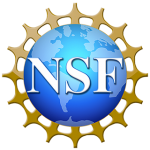June 11, 2018
Dear Colleagues:
 NSF invites proposals to solve educational challenges created by the technology revolution. To effectively respond to many of the problems facing our nation, new scientific advances are needed, as defined in the Big Ideas for Big Ideas for Future NSF Investments. Achieving these advances will require changes in what people learn and how they learn it. Through this STEM Education for the Future Dear Colleague Letter (DCL), existing NSF education and workforce development programs encourage innovative proposals to prepare scientists and engineers for work in new contexts created by technology and big data.
NSF invites proposals to solve educational challenges created by the technology revolution. To effectively respond to many of the problems facing our nation, new scientific advances are needed, as defined in the Big Ideas for Big Ideas for Future NSF Investments. Achieving these advances will require changes in what people learn and how they learn it. Through this STEM Education for the Future Dear Colleague Letter (DCL), existing NSF education and workforce development programs encourage innovative proposals to prepare scientists and engineers for work in new contexts created by technology and big data.
Specifically, through this DCL, NSF aims to support STEM educational research and development projects whose results can enable our country to: better prepare its scientific and technical workforce for the future; use technological innovations effectively for education; advance the frontiers of science; and adapt to both new work environments and new education pathways needed to prepare students at all levels for those environments.
Technology, Computation, and Big Data are driving changes to daily life. Computing, sensing, data storage, data access, communication, and hardware technologies continue to change our lives and work. These technologies produce unprecedented volumes of data and vast interconnectivity capabilities, such as data provided by ubiquitous sensing and the Internet of Things. Personal, behavioral, transactional, and environmental data in a myriad of formats (numerical, image, audio, and others) are available at ever greater speeds, propelling innovations such as artificial intelligence-aided automation. Such automation in the home, office, and classroom also challenges long-standing expectations about privacy, security, and the veracity of the underlying data
Although it is expected that technology, computation, and big data will have positive impacts on the human condition, the world still faces persistent societal, cultural, and economic challenges, e.g., hunger, poverty, our dynamic Earth, and energy security. Moreover, we must continue work to ensure equitable access to precisely those technologies that give rise to these changes. Equally important is the challenge of ensuring equitable access to high quality education, which leads directly to questions important to the NSF: How do these new technologies change the way we learn and do science, math, and engineering? How do we navigate such change? How do we use technological innovations to ensure full participation of all groups in the STEM workforce?
To answer these questions related to learning, researchers will need to cross disciplines, define the potential impact of technologies, and develop new technical competencies. Furthermore, all scientific and technical workers will need new knowledge and skills so they can perform new tasks or perform current tasks with new tools.
